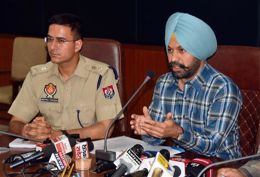
In a Foreign Land, By Chance, by Nabaneeta Dev Sen, translated by Soma Das. Niyogi. Pages 144 Rs 295
Aradhika Sharma
Nabaneeta Dev SEN’S seemingly simple book, in fact, raises some deep queries about identity. Are foreign lands really foreign and strange or do identities resonate in ways that are inexplicable, no matter how distant and different these seem geographically?
The author of 80 books in Bengali, Nabaneeta Dev Sen is an award-winning Indian poet, novelist and academic, who is celebrated in literary circles. Soma Das, the translator of this book, is a well-known translator of Bengali works into English. She is, therefore, able to retain the flavour of Bengali literature in the English translations.
The book is set in the 1970s. We meet Bipasha, who lives in London, on a visit to Czechoslovakia where she has come to participate in a literary symposium. She is a Bengali by birth, but writes poetry in English. In this foreign land, the constantly seeking and troubled Bipasha, finally finds closure to a past that’s been dogging her for years. The 1970s in Czechoslovakia saw the regime of the Gustav Husak that followed the Prague Spring reforms, which were unsuccessful attempts to liberalise Czechoslovakia. Although not out and out Stalinist, yet, the rights of the people were controlled and limited.
Whether West Bengal or Czechoslovakia, the condition of the people under such regimes remains similar. They perpetually live in dread of the secret police, ever watchful and fearful of every small thing.
Sen draws a parallel of this political milieu to the one that Bipasha had fled from the West Bengal of the 1970s.It had become a “police state” in response to the far-Left radical communist sentiments of the Naxalites. “Many things in East Europe reminded Bipasha of her country. After about five years in the West, she suddenly felt as though she had come closer to home. Yet, she couldn’t put a finger on exactly where the similarity lay.”
Originally printed in 1977, the slender novella thus tackles questions of how the all-pervasive politics of a country affects individual lives and the fact that ideologies of a state can determine the outcomes of lives, changing and impacting them irrevocably.
The flow of events in the story covers one day (and night) in the heroine’s life and herein she faces the questions of identity, love, desire, language, governments, ideologies and territory. The narrative adopts the flashback mode, where Bipasha keeps going back to her past, revealing how she finally landed up in “a foreign country by chance”. Probably, her memories are triggered by experiencing the atmosphere reminiscent of the repressive political situation that had made her flee the land of her birth as well as the irony of finding herself in that situation once again. The end of her day sees a closure of sorts for Bipasha, who had been carrying a heavy burden of guilt and regret on her slender shoulders.



























